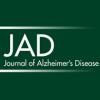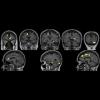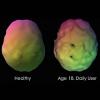20 December 2016
New biomarker predicts Alzheimer's disease and link to diabetes
An enzyme found in the fluid around the brain and spine is giving researchers a snapshot of what happens inside the minds of Alzheimer’s patients and how that relates to cognitive decline.
19 December 2016
JAD’s Alzheimer Funding Analyzer Now Includes Alzheimer’s Association Grants
The Journal of Alzheimer’s Disease (JAD) is pleased to announce that its Alzheimer’s Funding Analyzer (AFA) now includes all Alzheimer’s Association (AA) grants in addition to grants from other funding bodies. AFA is a free service that is part of a suite of online features integrated into the JAD site to meet the needs of the Alzheimer disease (AD) research community.
16 December 2016
Antipsychotic drug use increases risk of mortality among persons with Alzheimer’s disease
Antipsychotic drug use is associated with a 60 percent increased risk of mortality among persons with Alzheimer's disease, shows a recent study from the University of Eastern Finland. The risk was highest at the beginning of drug use and remained increased in long-term use. Use of two or more antipsychotic drugs concomitantly was associated with almost two times higher risk of mortality than monotherapy. The results were published in the Journal of Alzheimer’s Disease.
14 December 2016
Promising discovery for a non-invasive early detection of Alzheimer’s disease
Drs. Maccioni and Farías have pioneered the technology that detects in human blood platelets the pathological oligomeric forms of brain tau protein in patients with Alzheimer’s disease (AD) and other neurodegenerative disorders. More importantly, the ratio between this anomalous tau and the normal tau protein can discriminate AD patients from normal controls, and are associated with decreased cognitive impairment. These studies open a new avenue in the development of highly sensitive and efficient biomarkers for neurodegenerative disorders.
8 December 2016
Higher BMI in Adolescence May Affect Cognitive Function in Midlife
Overweight and obesity in adolescents have increased substantially in recent decades, and today affect a third of the adolescent population in some developed countries. While the dangers posed by high adult BMI on cognitive function in later life have been documented, the association of adolescent BMI with cognitive function in midlife has not yet been reported.
8 December 2016
New tool to help predict dementia risk in older people
A machine learning method analyzing large amounts of health information has potential in assessing the risk of cognitively healthy older people for later dementia, according to research published in the Journal of Alzheimer’s Disease. The new risk assessment tool also presents the individual risk profile in a quickly interpretable visual form.
27 November 2016
New Study Shows Marijuana Users have Low Blood Flow to the Brain
As the U.S. races to legalize marijuana for medicinal and recreational use, a new, large scale brain imaging study gives reason for caution. Published in the Journal of Alzheimer’s Disease, researchers using single photon emission computed tomography (SPECT), a sophisticated imaging study that evaluates blood flow and activity patterns, demonstrated abnormally low blood flow in virtually every area of the brain studies in nearly 1,000 marijuana compared to healthy controls, including areas known to be affected by Alzheimer’s pathology such as the hippocampus.
23 November 2016
UTMB study offers new insight into how Alzheimer’s disease begins
A new study from The University of Texas Medical Branch at Galveston offers important insight into how Alzheimer’s disease begins within the brain. The researchers found a relationship between inflammation, a toxic protein and the onset of the disease. The study also identified a way that doctors can detect early signs of Alzheimer’s by looking at the back of patients’ eyes.
20 November 2016
Aurin Biotech's Simple Saliva Test Predicts Future Onset of Alzheimer's Disease
Aurin Biotech announced today that it has developed a simple saliva test that can diagnose Alzheimer's disease, as well as predict its future onset, allowing individuals to take preventive measures before the disease takes hold. The disease, which affects an estimated 35 million people worldwide, is predicted to double in 20 years if progress is not made. In addition, the current cost of caring for Alzheimer's patients is estimated at more than $500 billion per year.
1 November 2016
A Novel and Intelligent Home Monitoring System for Care Support of Elders with Cognitive Impairment
Greek researchers demonstrated the potential use of assistive technologies for people with dementia, to fulfill an important need: the improvement of clinical diagnosis and decision making meeting individual needs. Remote home monitoring of patients is a promising “participant-centered” management approach which provides relevant and reliable information that enables clinicians to drive adaptive interventions.
















